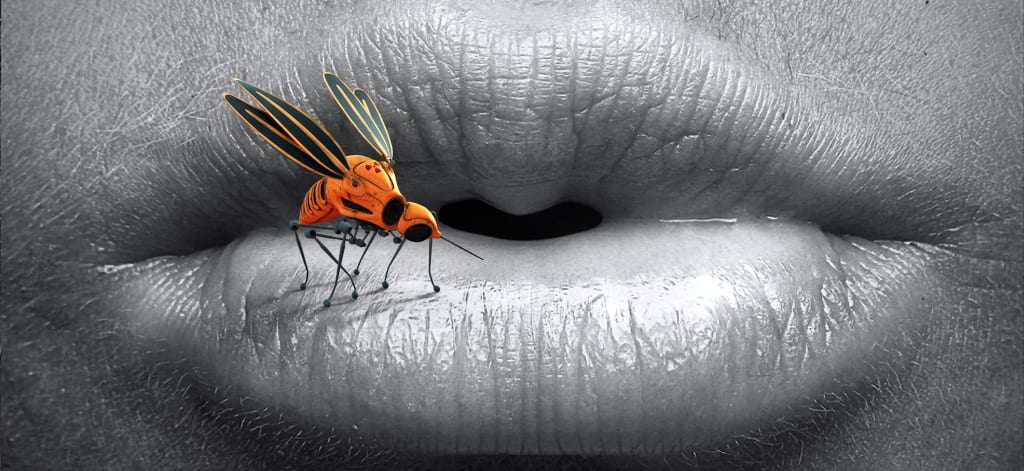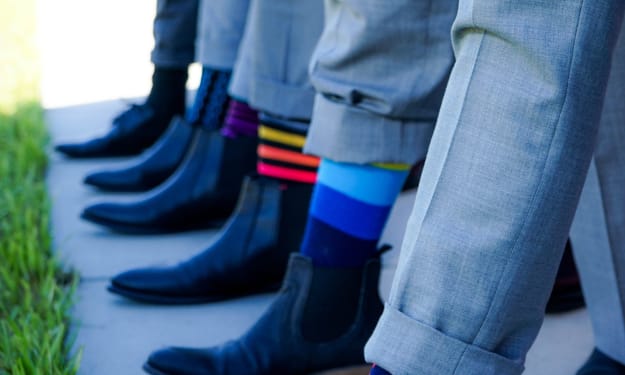Why Are Some People More Susceptible To Mosquito Bites Than Others?
Now it is no secret why I am among their favorite

While some people simply enjoy the outdoors, others are eaten practically alive by swarms of bloodsuckers. Why do mosquitoes behave differently to two humans who are in the same area?
Some people may believe that the enhanced appeal of mosquitoes is just a fiction of a bitten person's imagination who despises insects. However, research into this phenomenon has revealed that blood-sucking insects' interest in individual humans is real and could be attributable to a variety of circumstances.
Clothing Colors
Mosquitoes, it turns out, are fashion-conscious and prefer to fly on clothing of a specific color. Of course, it is a joke about the trend, but bloodsuckers are more drawn to those dressed in dark clothing. If you're aggressively moving and waving your arms, you're attracting insects rather than repelling them.
Heat Is Produced By The Body
When a female mosquito approaches a person, she begins to navigate using the heat of the human body. The mosquito's sensitive organs will detect even the tiniest change in body temperature and send it toward the warmer individual. It turns out that after exercising, you will attract more attention. Sick people and pregnant women, whose body temperatures are normally higher than normal, are also at danger.
Consumption Of Alcohol
Finally, good news for pregnant ladies: alcohol attracts insects quite strongly, so women in this situation will be able to breathe easier if people are drinking around them. Although it is unclear how blood-sucking insects detect the presence of alcohol in the air or blood, investigations show that drinking 350 mL of beer is enough to attract a large number of gnats.
Carbon Dioxide
Mosquitoes use a unique organ near their proboscis to identify the source of carbon dioxide from up to 50 meters away. As part of their normal breathing process, all individuals exhale carbon dioxide, although some expel more than others. Pregnant women, for example, exhale 21% more CO2 than non-pregnant women. Children, on the other hand, do not exhale nearly as much carbon dioxide as adults do, and hence do not attract mosquitoes as much.
Features Of The Skin
The qualities of your skin are responsible for over 85% of your appeal to mosquitoes and other invasive insects. If the secretions from your skin glands include a lot of lactic and uric acid, be prepared to be continually assaulted by insects, even if you wear white, breathe very little, and don't drink a drop of alcohol.
Mosquitoes are orientated not just by smell, but also by hearing and seeing, and they even have a temperature sensor that allows them to find a warmer spot on the skin to take blood from. Darker items appear more appealing to mosquitoes (although why is unknown), so you may avoid the additional attention of mosquitoes by wearing colorful and light-colored clothing.
As for hearing, it has recently been found that mosquitoes remember smells associated with unpleasant air vibrations and try to avoid them, even if they are human smells. In other words, if you clap your hands loud enough, mosquitoes may remember to stay away from you.
Something about the short life of a mosquito
Blood-sucking mosquitoes come in roughly 3,600 different kinds (Culicidae). They live on all continents except Antarctica. Culex pipiens, the most common mosquito, may be found anywhere there are people, its primary food source.
Nectar and plant sap are the primary sources of nutrition for mosquitoes. Numerous species have adapted to sucking the blood of people and animals alike — not just mammals and birds, but also reptiles, amphibians, and even fish; mosquitoes sucking the hemolymph of huge insects are among them.
Male mosquitoes only eat nectar and survive for about a week; female mosquitoes only eat blood and live for about a week. Females have a longer lifespan than males. They wait a few days after drinking blood for the blood to be processed and the batch of eggs to mature. They then deposit their eggs on the water's surface, damp ground at the water's edge, or floating items.
The eggs develop into larvae, which dwell in the water and feed on aquatic microbes. They pupate after a while, and then adult insects emerge from their pupae. Some species emerge in as little as five days, while others take a month and a half to emerge.
About the Creator
Enjoyed the story? Support the Creator.
Subscribe for free to receive all their stories in your feed. You could also pledge your support or give them a one-off tip, letting them know you appreciate their work.






Comments
There are no comments for this story
Be the first to respond and start the conversation.